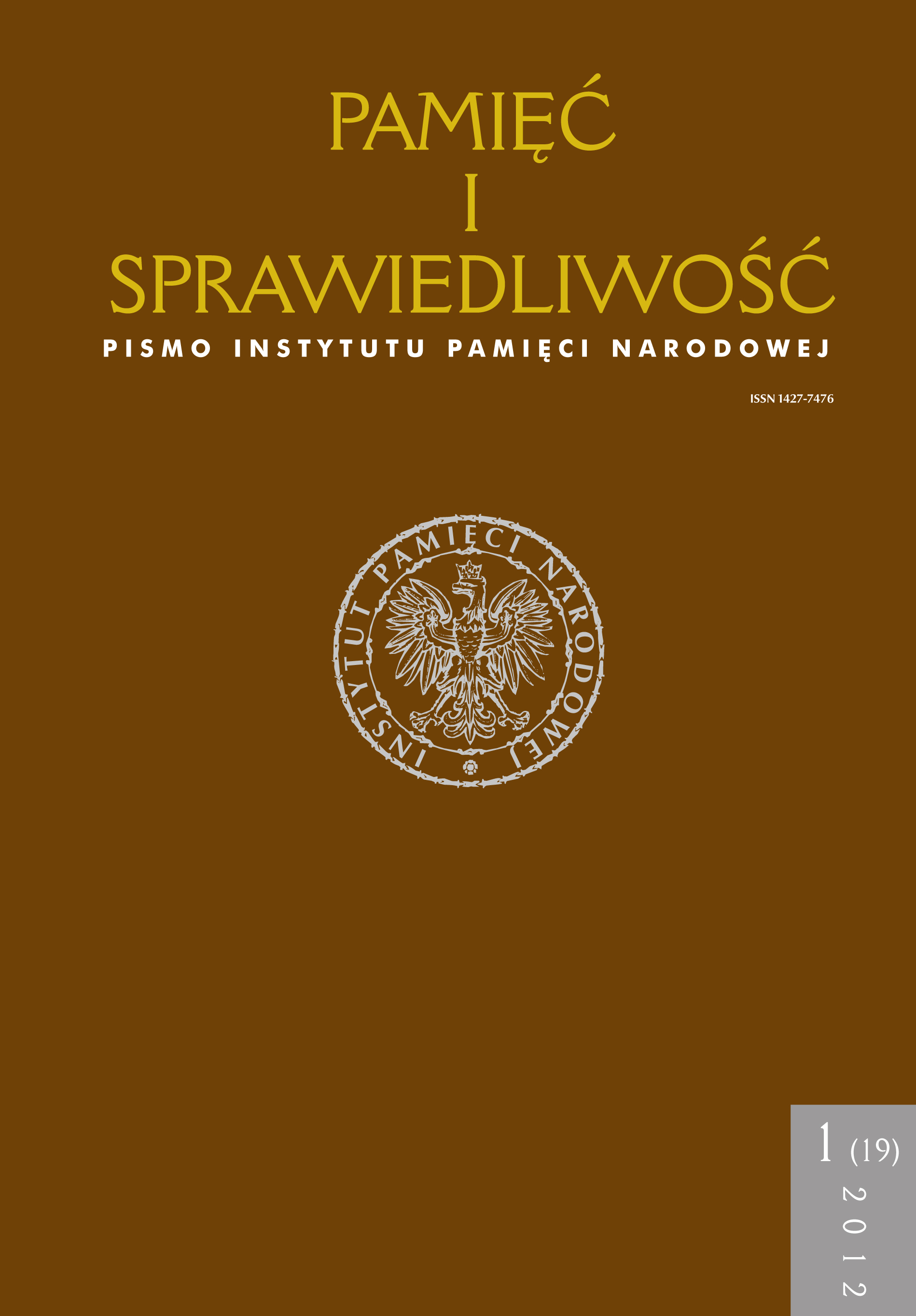Początki programu bezpośredniej dystrybucji książek w Polsce w latach 1958–1959
Pamięć i Sprawiedliwość, Vol. 19 No 1 (2012), pages: 285-302
Publication date: 2012-06-30
Résumé
Because of its size, importance and openness after 1956, Poland was from
the start the most signifi cant East European target country of the Free Europe
Committee’s book program. Accordingly, Polish visitors to the West were the fi rst
to benefi t from a new book distribution method in addition to mailings. In the
fi rst three-quarters of 1957, an unprecedented number (some 55,000) persons
from the satellite countries visited the West, the vast majority of whom were Poles.
This provided an opportunity to deliver directly to the recipients selected litera-
ture, including politically signifi cant books and periodicals, without the hindrance
of postal censorship. On the other hand, only those granted exit visas to leave
Poland could receive books in this fashion. At the end of that year, Free Europe Press
(FEP) initiated a permanent system for the purpose of distributing by hand books
of political impact to Polish intelligentsia travelling to Western Europe. Stockpiles
of no more than 100 books supplied from a central stockpile in Munich were to
be maintained in London and Paris, the two centers that attracted the greatest
number of important visitors from Poland. Three types of literature were
envisaged: books requested by the visitor specifi cally, books selected by two Polish FEP
editors in New York and Munich, and books published in Polish for this purpose
under FEP sponsorhip. The project would operate as a branch of the mailing project through a network of Polish cultural institutions, libraries, bookshops,
publishing houses, clubs and cultural associations. Among them were the Sikorski
Institute in New York, the Kosciuszko Foundation, the Polish Library in London
and Paris, the Polish Youth Center in Paris, and the Polish YMCA in Geneva. Their
number eventually reached 30 in London and 11 in Paris and the two cities
became the main publishing centers of Polish books outside Poland.
The initial Polish project ran from 1958 till the summer of 1959 under the
aegis of the East Europe Institute under Sam Walker and John Kirk in order to
avoid any identification with the Free Eutope Committee. Through a network
of distribution points in London, Paris, Rome, Stockholm, Brussels and Munich,
it distributed over 1,000 books per month to East Europeans travelling in the
West. After returning home, some recipients continued to request books to be sent
to them by mail. This program was followed by a special book distribution
project targeting the East European and Soviet delegation members attending the
communist-organized 7th World Youth Festival held in Vienna from July 26 till
August 4, 1959.
 Język Polski
Język Polski
 English
English
 Deutsch
Deutsch
 Français (France)
Français (France)
 Italiano
Italiano
 Русский
Русский


 PDF (Język Polski)
PDF (Język Polski)
